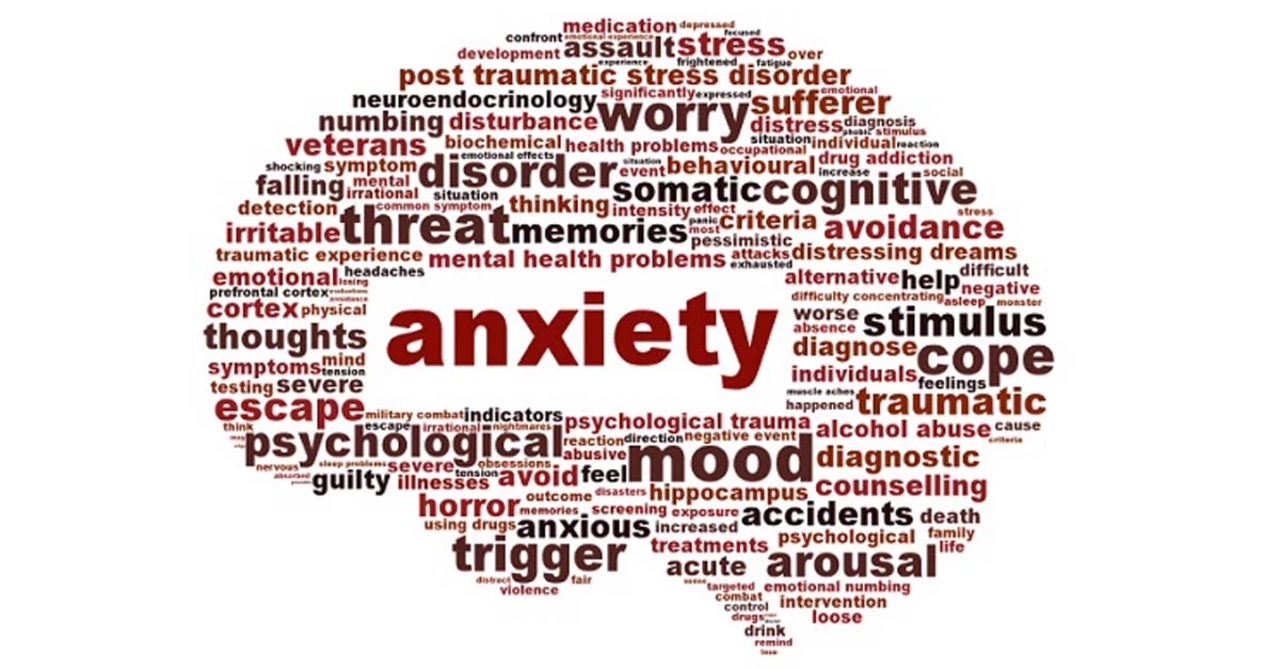Introduction to Vortioxetine and Social Anxiety Disorder
As someone who has struggled with social anxiety disorder for years, I know firsthand how crippling this condition can be. I've tried various treatments and therapies to manage my symptoms, but none have been quite as promising as Vortioxetine. In this article, I will share my experience and discuss the potential benefits of using Vortioxetine for social anxiety disorder.
Understanding Social Anxiety Disorder
Social anxiety disorder, also known as social phobia, is a mental health condition characterized by an intense fear of social situations. This fear can be so severe that it interferes with daily activities and relationships, leading to feelings of isolation and depression. People with social anxiety disorder often experience symptoms such as rapid heart rate, sweating, trembling, and difficulty speaking when faced with social situations. The exact cause of social anxiety disorder is not entirely understood, but it is believed to be a combination of genetic and environmental factors.
What is Vortioxetine?
Vortioxetine is a prescription medication that belongs to a class of drugs called serotonin modulators and stimulators. It is primarily used to treat major depressive disorder but has also shown promise in treating other mental health conditions, such as generalized anxiety disorder and social anxiety disorder. Vortioxetine works by increasing the levels of serotonin and other neurotransmitters in the brain, which can help improve mood and reduce anxiety.
Research on Vortioxetine and Social Anxiety Disorder
Recent studies have suggested that Vortioxetine may be effective in treating social anxiety disorder. In a 2018 study published in the International Journal of Neuropsychopharmacology, researchers found that Vortioxetine significantly reduced social anxiety symptoms in participants with generalized social anxiety disorder compared to a placebo. Another study conducted in 2016 found similar results, with participants experiencing significant improvements in their social anxiety symptoms after taking Vortioxetine for 12 weeks. However, more research is needed to fully understand the effectiveness of Vortioxetine for social anxiety disorder and to determine the optimal dosage for this specific condition.
My Personal Experience with Vortioxetine
After learning about the potential benefits of Vortioxetine for social anxiety disorder, I decided to give it a try. I began taking a low dose of the medication, as prescribed by my doctor, and gradually increased the dosage over time. Within a few weeks, I noticed a significant improvement in my social anxiety symptoms. I felt more comfortable in social situations, and I was able to engage in conversations without feeling overwhelmed by anxiety.
Side Effects of Vortioxetine
Like any medication, Vortioxetine can cause side effects. Some of the most common side effects include nausea, dizziness, dry mouth, constipation, and headache. In my experience, these side effects were generally mild and subsided over time as my body adjusted to the medication. However, it's essential to discuss any concerns or side effects with your healthcare provider, as they can help determine the best course of action for your specific situation.
Alternatives to Vortioxetine for Social Anxiety Disorder
If you are considering Vortioxetine for social anxiety disorder but are concerned about potential side effects or want to explore other options, there are several alternative treatments available. Cognitive-behavioral therapy (CBT) has been shown to be an effective treatment for social anxiety disorder, as it helps individuals recognize and change negative thought patterns that contribute to anxiety. Additionally, other medications such as selective serotonin reuptake inhibitors (SSRIs) and benzodiazepines may be prescribed to help manage symptoms of social anxiety disorder.
Discussing Vortioxetine with Your Healthcare Provider
If you think Vortioxetine may be a suitable treatment option for your social anxiety disorder, it's crucial to discuss this with your healthcare provider. They can help determine if Vortioxetine is the right choice for you based on your medical history, current medications, and other factors. They can also provide guidance on the appropriate dosage and monitor your progress throughout treatment.
Conclusion: Vortioxetine as a Potential Treatment Option for Social Anxiety Disorder
In conclusion, Vortioxetine has shown promise as a potential treatment option for social anxiety disorder. While more research is needed to fully understand its effectiveness, my personal experience with Vortioxetine has been positive, and I've seen a significant improvement in my social anxiety symptoms. If you struggle with social anxiety disorder and are considering Vortioxetine, I encourage you to discuss this option with your healthcare provider to determine if it may be the right choice for you.


Jacqueline von Zwehl
I’ve found that combining Vortioxetine with regular CBT sessions can amplify the coping skills many patients develop.
When the medication eases the physiological anxiety, therapy can focus more on restructuring negative thoughts.
My own therapist noticed I was able to engage in exposure exercises more consistently after a few weeks on the drug.
It’s also worth tracking sleep patterns, because improved rest often reinforces the therapeutic gains.